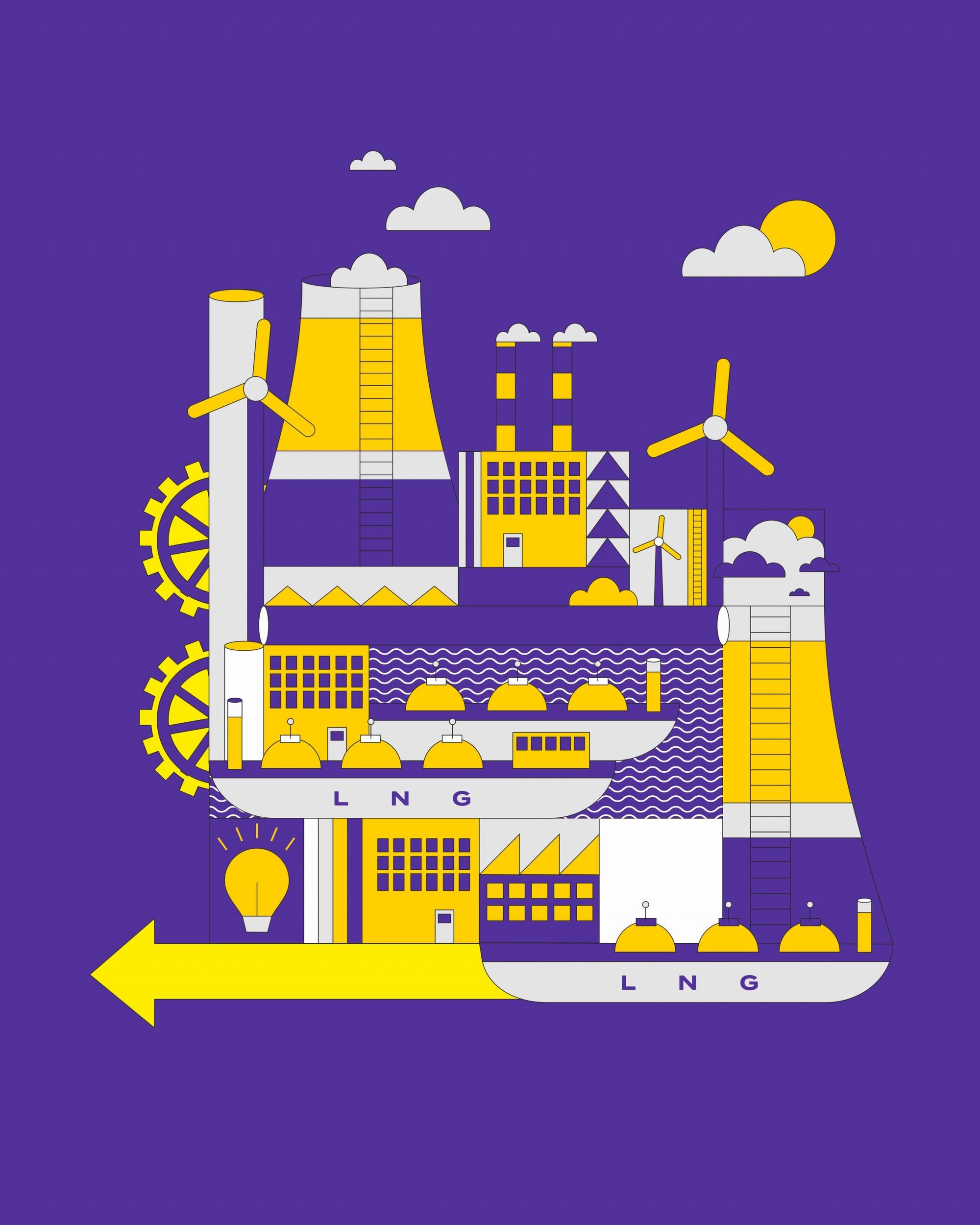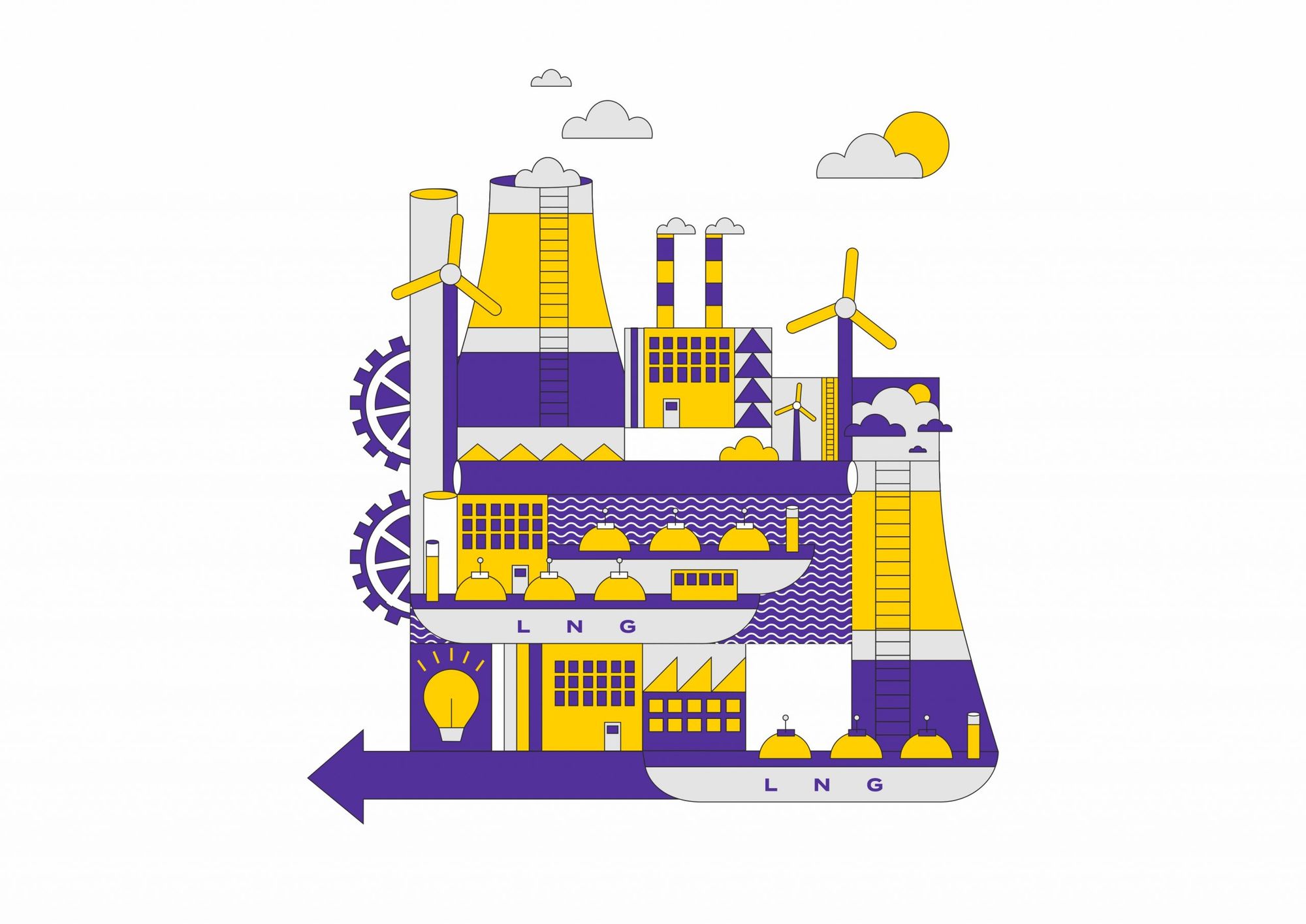We talked to Claudia Patricolo, Editor-in-chief of CEEenergynews — who left Paris and Rome to build her career in Budapest — about the energy market in Central Europe, as well as discussing the gas and energy crisis, and innovation. Interview.
First of all, I’d like to ask you about your career. You started your career in Rome, Italy, and after that you moved to Paris working for Le Monde, followed by working for the Emerging Europe newspaper in Central and Eastern Europe, focusing on our region. What was your intention of coming to this region after the beautiful streets and districts of Paris?
I have to say, I always underestimated this region, and I always had a lot of prejudices. So I had expected this region to be by far lagging behind Western Europe. When I got the opportunity to come here — it was for a new European project in Debrecen — it was supposed to last three months, but it ended up being one year. Before coming here, I had a lot of thoughts in my mind, but when I arrived, I realized that everything that we know about this region is completely inexact. It’s a beautiful land, first of all, and the business is flourishing. There are many beautiful things to see, many interesting people to meet, so I really enjoyed being here. This is why I decided to work as a journalist here, because I want to fight against this misconception that is in Western Europe about Central and Eastern Europe. Hungary was a wonderful surprise, so I decided to stay.
If we delve further into the topic of misconceptions, what would you highlight?
I think it’s because of migratory movements. The fact that a lot of people from Eastern Europe moved to Western Europe and then they always end up doing jobs that are not professional ones, which is the same thing that actually we did as Italians when we emigrated to the United States, it’s just we’ve forgot about that. When we have people coming from Romania, from Ukraine, they basically end up doing the jobs that we would no longer want to do, so then there’s this preconception that these are the only jobs people from the region are willing to do, and people never think about there are also doctors or lawyers in the region.
As the Editor-in-chief of CEEnergy News, how do you view the strategy of the Central and Eastern European countries regarding the energy sector during the current European energy crisis? What is the difference between East and West?
As we were saying, the energy crisis was felt a little bit less in this region because different agreements are in place. I believe, personally, that maybe Central and Eastern Europe is looking more at energy sources as energy sources, and less as political sources, which is something that maybe happens a little bit more in Western Europe. And I’m here referring to Russian gas. With the appearance of COVID, we’ve all been sitting at home, which has required more energy—we needed a gas supply and Russia was able to supply this gas. We buy gas from a lot of countries, but then it turns into a political topic in Western Europe. I think the approach of Central and Eastern Europe in a way is a little bit more about energy itself, which is also due to historical and geographical reasons. And, there’s also an economical reason, I mean, although as I mentioned, I am very impressed by Central and Eastern Europe, it’s still lagging behind Western Europe and that gap results in a different approach to the energy mix.
You mentioned Russia, whose perception is not uniform at regional level. Hungarian and Polish energy policies, for example, are in a stark contrast, partly on a conceptual level and partly because of the way Russia is perceived. In such cases, who can play the role of the mediator in these debates?
First of all, Hungary and Poland are in two different geographic situations. Poland has access to the sea, therefore it can also get different types of access to different pipelines, as well as access to offshore wind, not to mention the interconnection with Lithuania. Hungary doesn’t have access to the sea so they must get energy in some way. So basically, maybe they clash because of something that’s given by nature. I don’t think there should be a mediator because if we think about the mediator the first thought leads to the European Commission as we’re talking about all member states of the European Union. So, the European Commission could be the mediator, but the European Commission represents the interests of many states, therefore it’s quite difficult to be objective about this topic. In my opinion, it’s interregional cooperation that could work better instead of finding a mediator.

What do you think, is this type of interregional cooperation nowadays a form of the Visegrad Four or the Three Seas Initiative?
What’s for sure, is that the V4 and now the Hungarian presidency is pushing a lot of topics on climate change and sustainability, with energy as a priority, which was almost the same as the previous presidencies as a recognition of the importance of energy. The Three Seas Initiative is also important because it includes other countries, not just Poland, Slovakia, Hungary and Czechia, therefore, it allows more interconnectivity and diversification. For example, if we talk about gas, it’s a platform to create connections, not only between West and East, but also between North and South. Sometimes we forget about the Baltics, that’s why it’s important that Latvia is hosting the next Three Seas Initiative Summit, because they can play a role in this North South interconnection.
Another regional contrast is that some countries support resource diversification to counterbalance Russian influence, while others only support infrastructure diversification to maintain the current status quo. How do you see the situation, do we have to choose between the two positions?
Building infrastructure has its costs, and you can’t just build a pipeline tomorrow morning. The supplies are one thing, the source is another, and the infrastructure is a third element. Both approaches should be present, because we also have to think about the countries like Bulgaria or the Western Balkans, where they need these different kinds of infrastructure, but they’re not yet ready for a different source. And then there are the countries that are luckier, like Poland for example, with access to the sea or the offshore wind, from the Baltics, and also LNG terminals. I’d also like to highlight Croatia, which is also helping the region in diversifying its sources.
Is there a country leading the way and dominating the energy policy at a regional level?
I think it’s more regional as I don’t see a specific state leading the way, as they are so different. Hungary is focused on nuclear energy, however, there are countries against nuclear energy. Ukraine is saying that they don’t use Russian gas while other countries want to use Russian gas. The V4, the Baltics, the Western Balkans, the area of the Black Sea, and also the Caucasus is playing a little bit of a role. I don’t see one champion.
The energy transition will have an influence on the economy of the region for sure, but right now, if we look at the innovations, they’re mostly imported from Western countries, or from South Asia. How do you see the state of innovation right now in the region?
I don’t agree. The only thing that’s missing here is communication. There are a lot of startups and programs focusing on innovation and technology. The reason we buy equipment from Korea is because it costs less. What would be cheaper, to buy things from Korea or to produce them locally, while also providing jobs and training to people? These are two things we need to place on the same scale, because if we think about other sectors, like the automotive industry or health and pharma industry, we have very well trained and skilled people here.
So, the key in this case is communication?
Communication and awareness. There are many opportunities out there, but of course, if you don’t know about them, you can’t apply for them either.


HIGHLIGHTS | Designers in the background of the fashion world

Gastronomy and art— A third Sphinx is guarding the Opera










